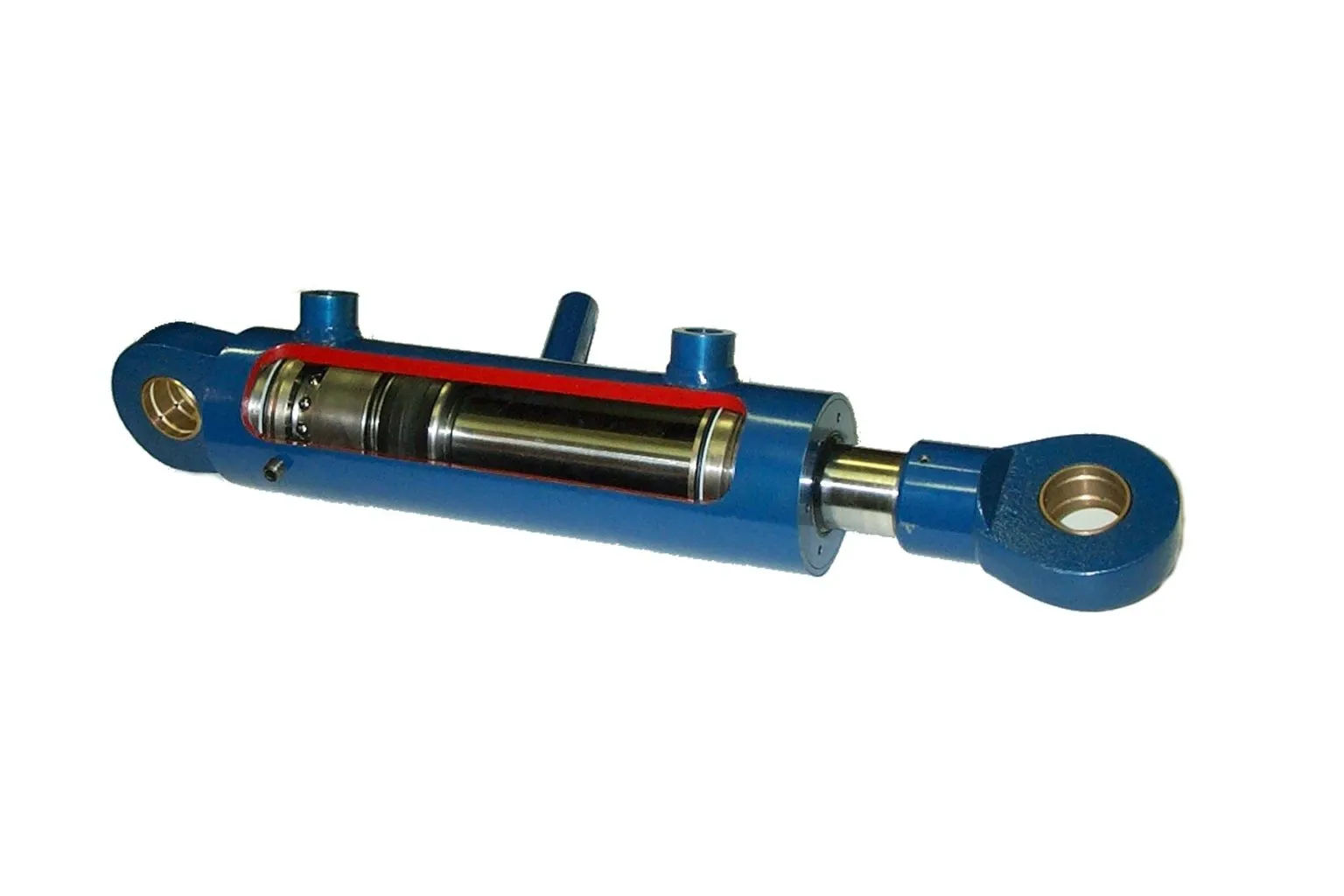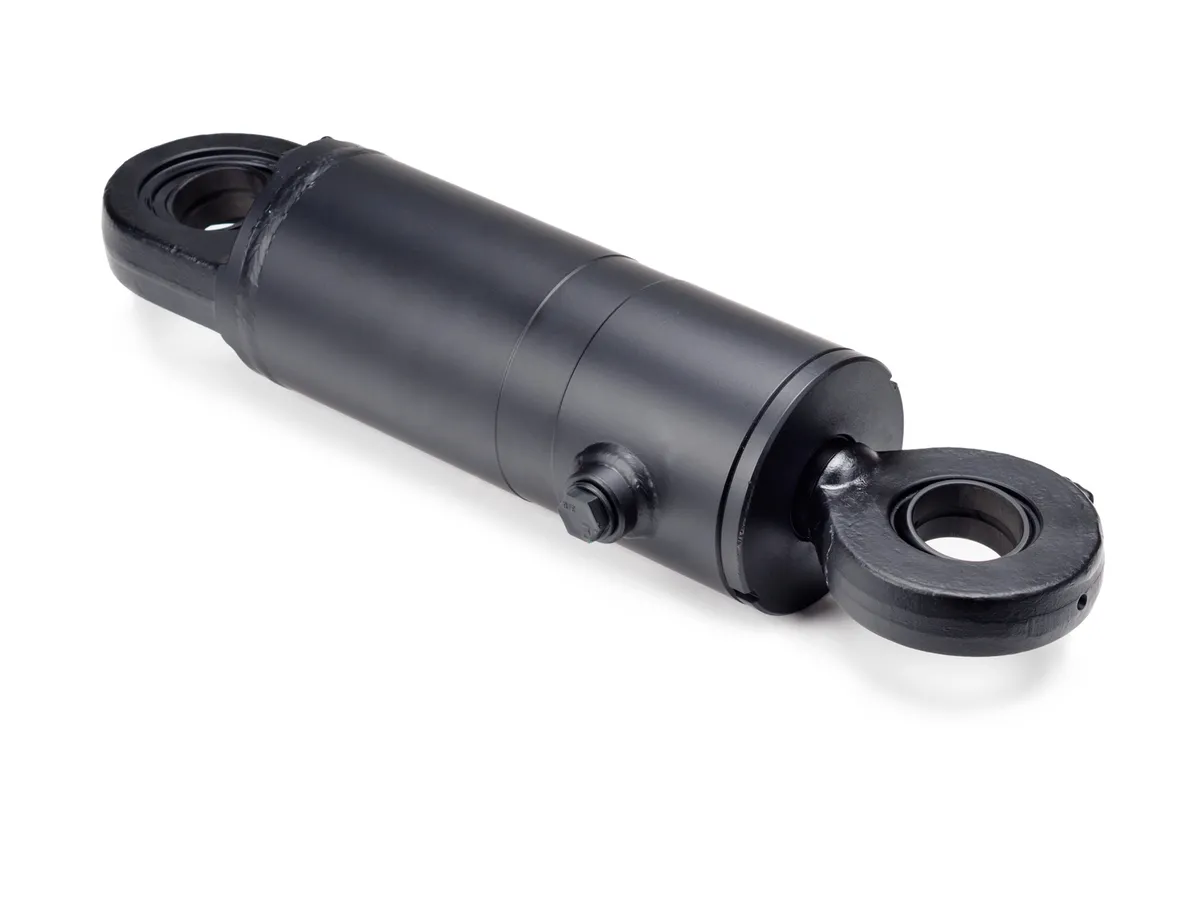Industrial Hydraulic Cylinder Performance
Understanding Industrial Hydraulic Cylinders
In the industrial environment, the hydraulic cylinder plays a crucial role in converting fluid power into mechanical force. This essential component consists of a cylinder barrel, piston, and seals, all working together to generate linear motion.
Key Components and Structure
- Cylinder Barrel: The main body of the hydraulic cylinder where the piston moves back and forth.
- Piston: The component that separates the cylinder into two chambers and transfers fluid pressure to mechanical force.
- Seals: Essential for preventing fluid leakage and maintaining pressure within the cylinder.
Principle of Operation
The operation of a hydraulic cylinder is based on Pascal’s law, which states that when pressure is applied to a confined fluid, it exerts equal pressure in all directions. As fluid is pumped into one side of the cylinder, the piston moves, creating linear motion.
Control Cylinder Operation Overview
The control of a hydraulic cylinder involves regulating the flow of hydraulic fluid to control the speed and direction of the piston. This is achieved through the use of valves and control systems that manage the fluid flow with precision.
Types of Hydraulic Cylinders
There are several types of hydraulic cylinders used in industrial applications, each with specific characteristics and advantages:
Single Acting Cylinder
This type of cylinder uses hydraulic pressure in one direction to extend the piston, with an external force (such as gravity or a spring) used to retract it.
Double Acting Cylinder
Double acting cylinders use hydraulic pressure in both directions to extend and retract the piston, providing more control over the movement.
Telescopic Cylinder
Telescopic cylinders consist of multiple stages that collapse into each other, allowing for a longer stroke length in a compact design.
Differential Cylinder
These cylinders have different piston diameters on each side, providing varying speeds and forces for different stages of the motion.
Advantages of Industrial Hydraulic Cylinders
- High Power Density: Hydraulic cylinders offer high force output in a compact size.
- Precision Control: The ability to regulate fluid flow allows for precise movement.
- Reliability: Hydraulic systems are known for their durability and long service life.
- Adaptability: Hydraulic cylinders can be customized to fit specific application requirements.
- Efficiency: Hydraulic systems can operate at high speeds and handle heavy loads efficiently.
Applications in Various Industries
Industrial hydraulic cylinders find wide usage in diverse industries, including manufacturing, construction, mining, agriculture, and more:
Manufacturing
In manufacturing plants, hydraulic cylinders are used in automated machinery for tasks like pressing, lifting, and bending metal components.
Construction
In construction equipment such as cranes and excavators, hydraulic cylinders provide the power needed for moving heavy loads and operating various functions.
Mining
In mining operations, hydraulic cylinders are crucial for machinery used in drilling, excavating, and transporting materials in challenging environments.
Agriculture
Agricultural machinery, such as tractors and harvesters, utilize hydraulic cylinders for tasks like lifting implements and adjusting equipment height.


Other Industrial Sectors
Hydraulic cylinders are also employed in industries like marine, aerospace, and automotive for a wide range of applications requiring reliable and efficient power transmission.
Selection and Maintenance of Hydraulic Cylinders
Choosing the right hydraulic cylinder for an application involves considering factors such as load capacity, stroke length, and mounting requirements. Regular maintenance, including inspection, lubrication, and cleaning, is essential to ensure optimal performance and longevity.
Installation Guide
Proper installation of hydraulic cylinders is critical to ensure safe and efficient operation. Following manufacturer guidelines and using appropriate tools and techniques is key to successful installation.
Maintenance Tasks
- Cleaning: Regularly clean the hydraulic cylinder to remove dirt and debris that can affect performance.
- Lubrication: Apply the recommended lubricants to ensure smooth operation and prevent wear and tear.
- Checking Wear: Monitor the condition of seals and components for signs of wear and replace as needed to avoid breakdowns.
Fault Diagnosis and Troubleshooting
In case of issues with hydraulic cylinders, proper diagnosis and troubleshooting are essential. Common problems include fluid leaks, insufficient power, and erratic movement, which can often be resolved through inspection and maintenance.
Preventive Measures
To minimize potential problems and optimize hydraulic cylinder performance, implementing preventive measures such as regular inspections, proper lubrication, and timely repairs is crucial. This helps avoid costly downtime and extends the service life of the equipment.
Choosing the Right Industrial Hydraulic Cylinder
When selecting an industrial hydraulic cylinder, factors like operating conditions, load requirements, and environmental factors should be considered. Exploring these aspects in depth ensures the chosen cylinder meets the specific needs of the application.
Long-Tail SEO Articles
1. “Enhancing Industrial Hydraulic Cylinder Performance in Construction Applications”: This article delves into the unique challenges and solutions for using hydraulic cylinders in construction equipment.
2. “Optimizing Hydraulic Cylinder Efficiency in Manufacturing Operations”: Explore how hydraulic cylinders play a vital role in enhancing productivity and efficiency on the manufacturing floor.
3. “Maximizing Agricultural Productivity with Custom Hydraulic Cylinder Solutions”: Learn how tailored hydraulic cylinder designs can improve performance and yield in agricultural machinery.
Our Company
We are a leading hydraulic cylinder manufacturer and distributor, offering a comprehensive product line for various industrial applications. With international certifications, customized services, state-of-the-art production equipment, and dedicated after-sales support, we strive to deliver top-notch solutions to our customers.
Author: lyl
